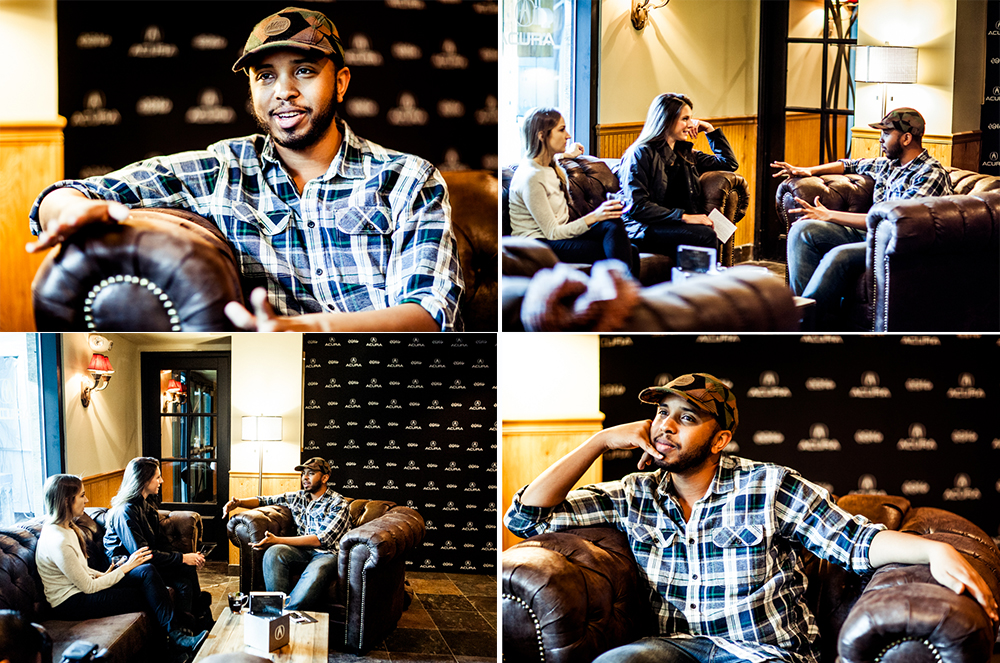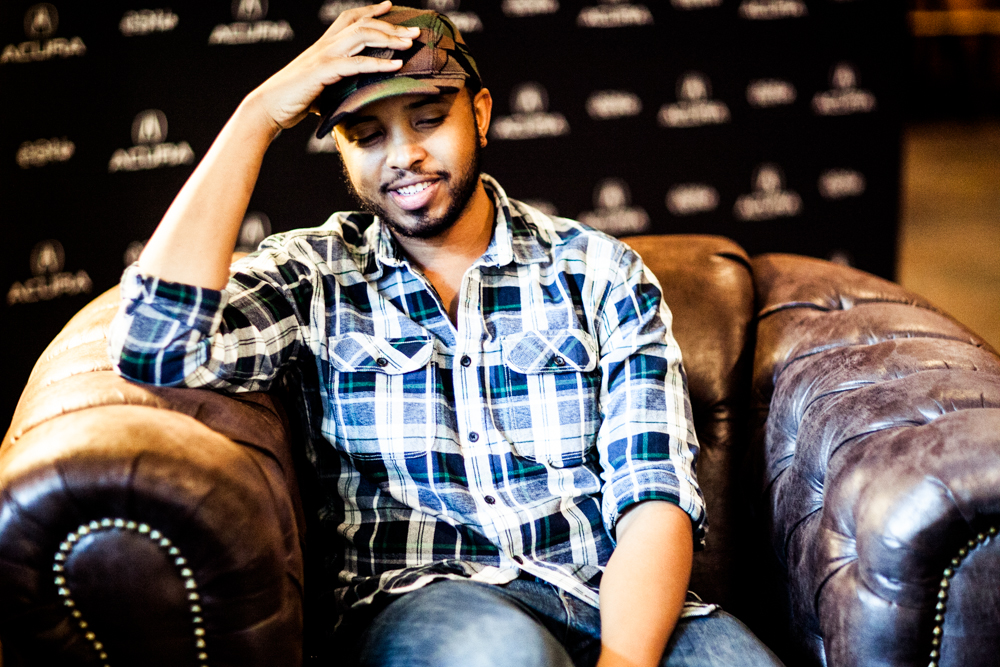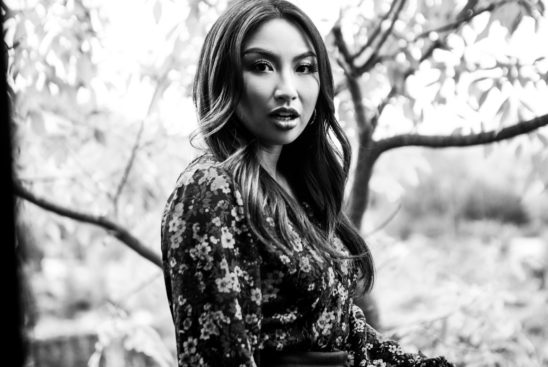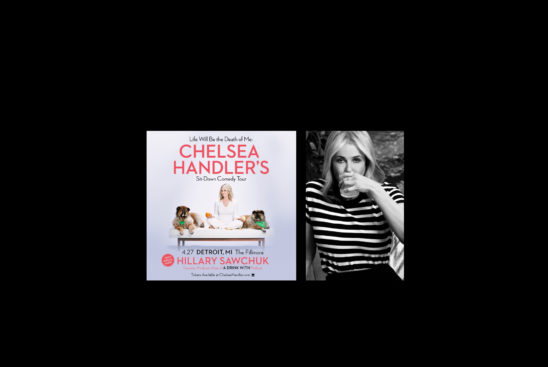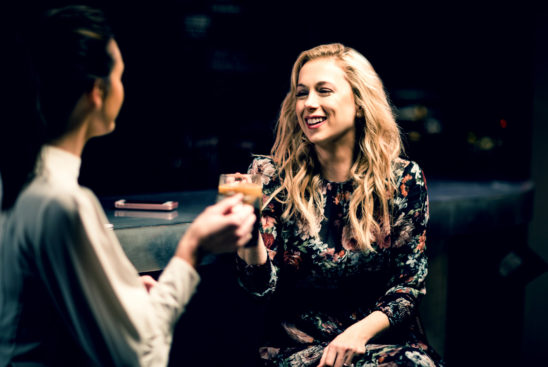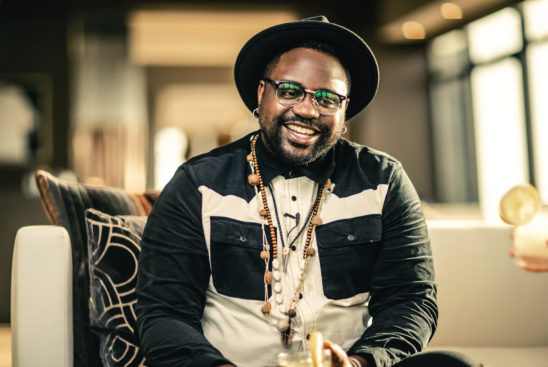When did you know you wanted to direct films?
As a kid I would draw comic books and I was always struggling to figure out the best way to tell the stories. I remember I was watching TV and all of a sudden it occurred to me that it was someone’s job to actually put the stuff I was watching onto TV. I remember in that moment being like, “That is what I want to do in life!” When I realized that movies and TV shows were an actual thing that people did as a job in life it blew my mind. It’s all I’ve ever wanted to do since.
“Dear White People” started as a concept trailer that went viral. Was that always the plan?
It wasn’t. I had spent some time as a publicist and working in marketing so I knew what to do but the biggest thing I learned from doing publicity is that you really can’t calculate it. If you expect things to happen a certain way and if you publicize them to absolutely work in that way, it’s not going to happen. For me it was really just about taking the next available step. I wasn’t satisfied living my life not getting this movie made. I didn’t have the money to make the movie and no one cared who I was or wanted to read the script so then I thought, “Well, what can I do?” That’s really where each thing came from, particularly with the trailer. Putting it out there and raising all of that money was like, “Wow, we proved that people of all races and of interesting age groups really respond to this concept trailer, a movie that doesn’t even exist yet. What do we do next?” Then our social media campaign and our NationBuilder campaign was all about proving we had an audience. Whatever the next step was that we could make to push the project further with the resources we had at the time is exactly what we did. But to say it was all planned out would be crazy. There are a lot of things we wished would have happened that didn’t happen and a lot of things that we didn’t expect to happen that happened in a big way.
What were some of the things you weren’t expecting to happen that did?
I had no idea that people on Tumblr are crazy in the best way. That really is where the heart of our fanbase lives. I remember we won Project of the Year and it started off as a poll on the Indiewire homepage. We were up for just a couple minutes and were already behind and all I did was post a screengrab of that on our Tumblr and within an hour we had 95 percent of the votes. It was so much so that all of the other films were like, “They’re cheating! They’re using a computer algorithm!” Indiewire had to change the way they did it because people couldn’t believe how rabid our fanbase was and how much they wanted to see the movie get made. I did not expect that!


Most surreal moment thus far?
I’m kind of jaded about most things because I was in publicity for so long that meeting an actor was just like going to work. One thing that was kind of random and cool was while we were doing our AP photo shoot we slowly realized that William H. Macy was taking pictures of us from the door like he was a total fan. That was crazy! I did not expect that so that was cool. I think really the biggest surreal moments are when people make it a point to tell us how much they connected with the story [in “Dear White People”]. You get to connect with both the people in and out of our target audience and that’s what is so cool about being here at Sundance.
How difficult was it to translate your concept into a full screenplay for a feature film?
Very difficult. I think any script is really hard to write but particularly a multi-protagonist story because the conventional wisdom is to never do that, especially not for your first script. [Conventional wisdom tells you to] pick one character and follow their singular journey but for me I was always attracted to multi-protagonist stories because they allow you to talk about something from a bunch of different viewpoints. I felt like with racial identity it wouldn’t be satisfying enough to see that journey through only one person’s eyes because there are so many different points of view on the subject and they are all conflicting so it was very difficult to crack the structure of the script. It was in my heart to tell this story so I had to just get myself to sit down and do the work, whatever that may be. Even when I was getting home at 10 p.m. from a very demanding job, I knew I still had to crank out my pages. I set a goal for myself to have the next draft done in spite of the fact that there are no guarantees that even when you write a great script that anything will ever happen with it. I was just talking myself through each stage of the process without a guarantee that it would ever amount to anything and that was the hardest part.
How did you get through times when you felt like giving up?
You always feel like giving up, but the alternative is worse. Not doing something that I know I was supposed to do in my heart and soul would be worse than giving up. I knew that I was supposed to make this movie, I don’t know how else to say it. I just felt like I was supposed to and I had to do this.
First person you call with good news?
One of our producers, Lena Waithe. She is my best friend and soulmate, we write together and work together. I tend to call her with my good news first. We are like flip sides of the same coin. We often have projects at similar stages randomly in the zeitgeist so we always call each other with the news, it’s just how it works. And then my mother of course.
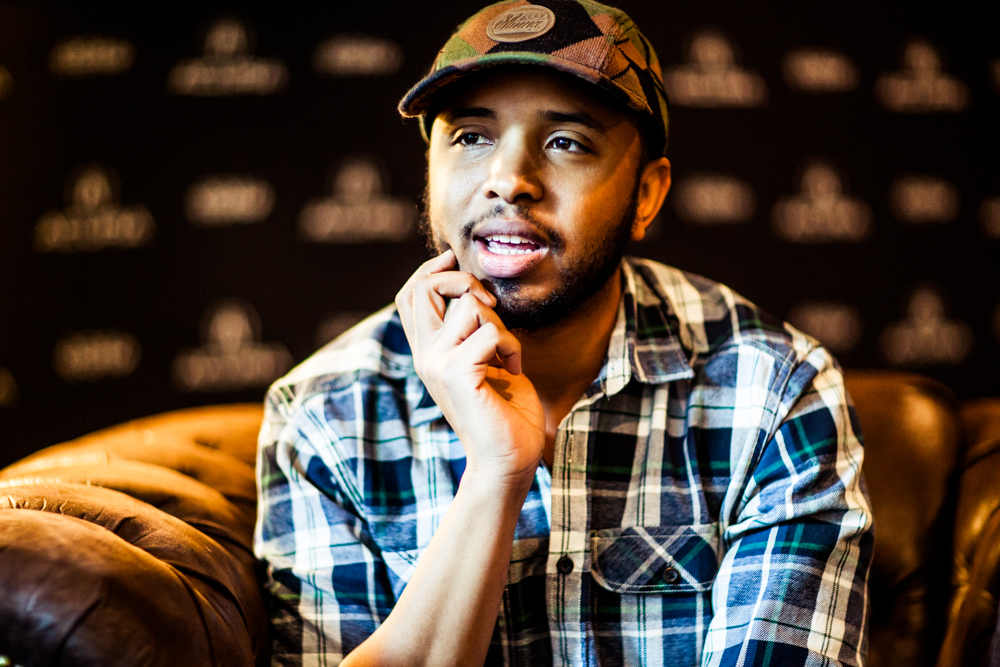

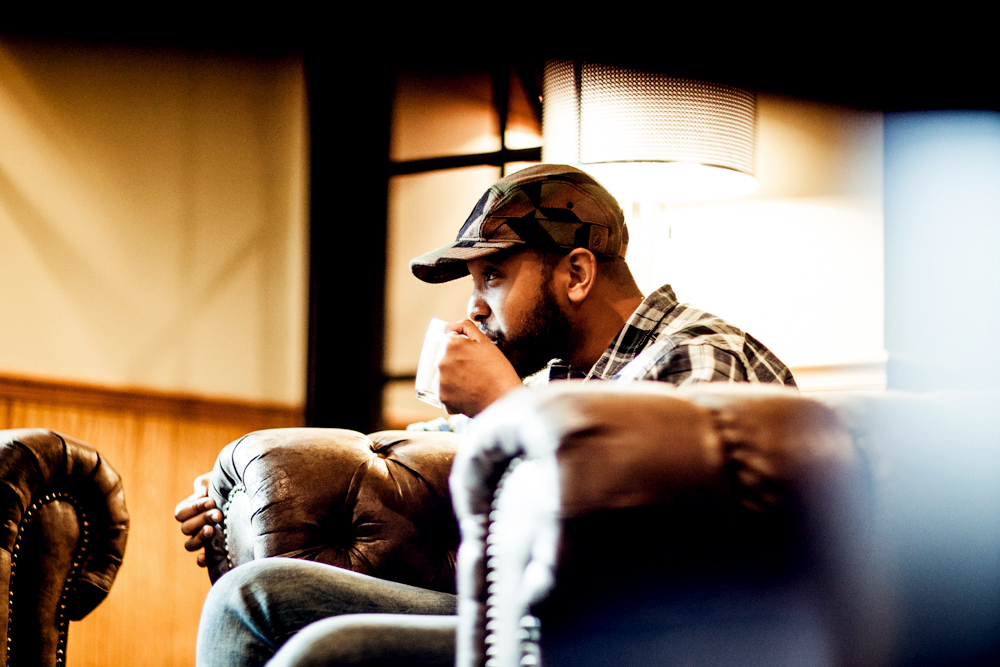
Did you have an on-set routine, like a certain sandwich you ate everyday?
Mike and Ikes. Guys, it was a problem. [Laughs] Because I don’t really have any really sexy director vices, like drinking a bottle of scotch or anything. I don’t smoke, I don’t really go out and party while I’m working so it was just Mike and Ikes sitting in my hotel room.
Do you have any directorial pet peeves?
I don’t know if I’m experienced enough to have pet peeves yet. I feel them developing though. [Laughs] As a director you have to give everyone answers so people tend to start asking questions everyday and the truth is you have to give an answer and you have to give direction but sometimes I would be walking onto a set for the first time and something fell through, this happened or that happened and I’d have no idea how I was going to adjust my shot list and schedule to accommodate each new change.
Is there anything you’ll be doing differently next time around?
I think as I make more movies I will be giving myself a little more room to breathe and allowing myself to be okay with not quite knowing all of the answers yet. That’s a really powerful part of art, living in the question. My acting teacher Suzanne Phillips always said, “Live in the question,” and there is something really powerful in not having the answer because the answer that you eventually arrive at is always, always better than the ones that immediately come to mind if you don’t take the time to just sit on it for a while. So I think I’ll be giving myself more room to live in it.
Do you feel a responsibility to continue to create great roles for minorities?
I absolutely feel a responsibility. So many actors, even those who didn’t necessarily end up in the film, were just so grateful to the material and grateful to have a project where they would have the ability to do things with actors that they just don’t get to do. Because in this industry black art comes in only one or two forms, it just does, it’s just the way it is so it felt good to give actors material that they really can sink their teeth into. But it also made things really difficult because we had so many people show up [to audition] for every part.
We recently spoke with Tessa Thompson, who portrays the character of Sam White. How did you narrow the audition process down to select the cast?
I really pushed for the most authentic choices I could make and those were not necessarily the most commercial or the most obvious. We really wanted to go for people who could be humans in their role because it is an ensemble piece and it is a heightened reality so it can easily become just cardboard cutouts of people. It was very important for me to find people who could live and breathe. They’re beasts. They’re real actors with real talent and I’m just so proud of them and so happy that I got to collaborate with them.
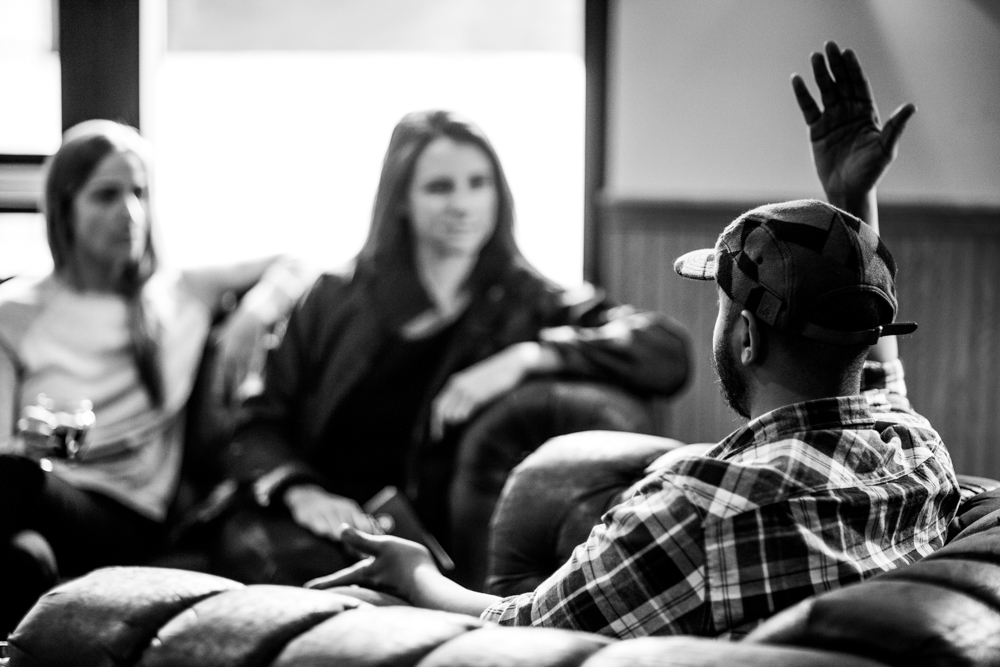

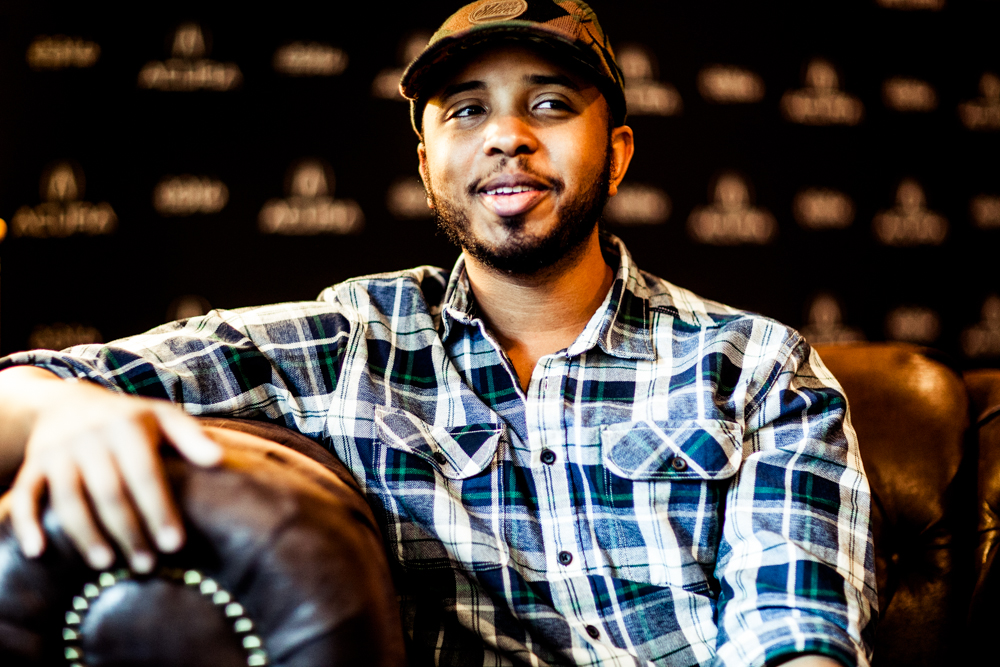
Who is someone you would love to see in one of your future projects?
Oh my God, there are so many people. Angela Bassett comes to mind. I’m a big fan of hers and I think she’s another one of these actors that is so incredible and should be getting more and better roles than she gets now. I would love to write one for her one day.
Have you been reading the press or do you not worry about reviews?
I am one of those people who are constantly checking Twitter and thank God it’s been kind because I don’t know if I would have been able to leave the condo if it wasn’t. [Laughs] So yeah, I’ve been very curious particularly in a film like this where I didn’t know how it would be perceived by mainstream audiences or mainstream press. I was dying to know and, again, thank God it’s been really nice so far.
What’s up next for you?
I’ve got a couple of things that I’m really excited about. Similar to “Dear White People” we made a proof of concept online of a TV show called “Twenties” which is written by Lena Waithe, one of my producing partners and my best friend. It’s something that I directed and we did it with the intention of getting it on television, so this year I’ll get to direct that pilot for TV which is very exciting. I’ve also got a couple of projects that are definitely departures from “Dear White People” but in really exciting ways, I can’t wait to talk about them and to actually get started on them. So there are a few things in the works!
If you could have a drink with anyone, who would it be?
Michael Jackson. That’s a really weird answer, I can’t even believe I even said it! It’s so not a poised and articulate response but he’s an artist who has impacted me so much. Even though I have no desire to work as a pop artist or anything like that, it’s true.
Did you enjoy this feature? Subscribe to our newsletter and never miss a drink, we promise we’ll never spam you!

